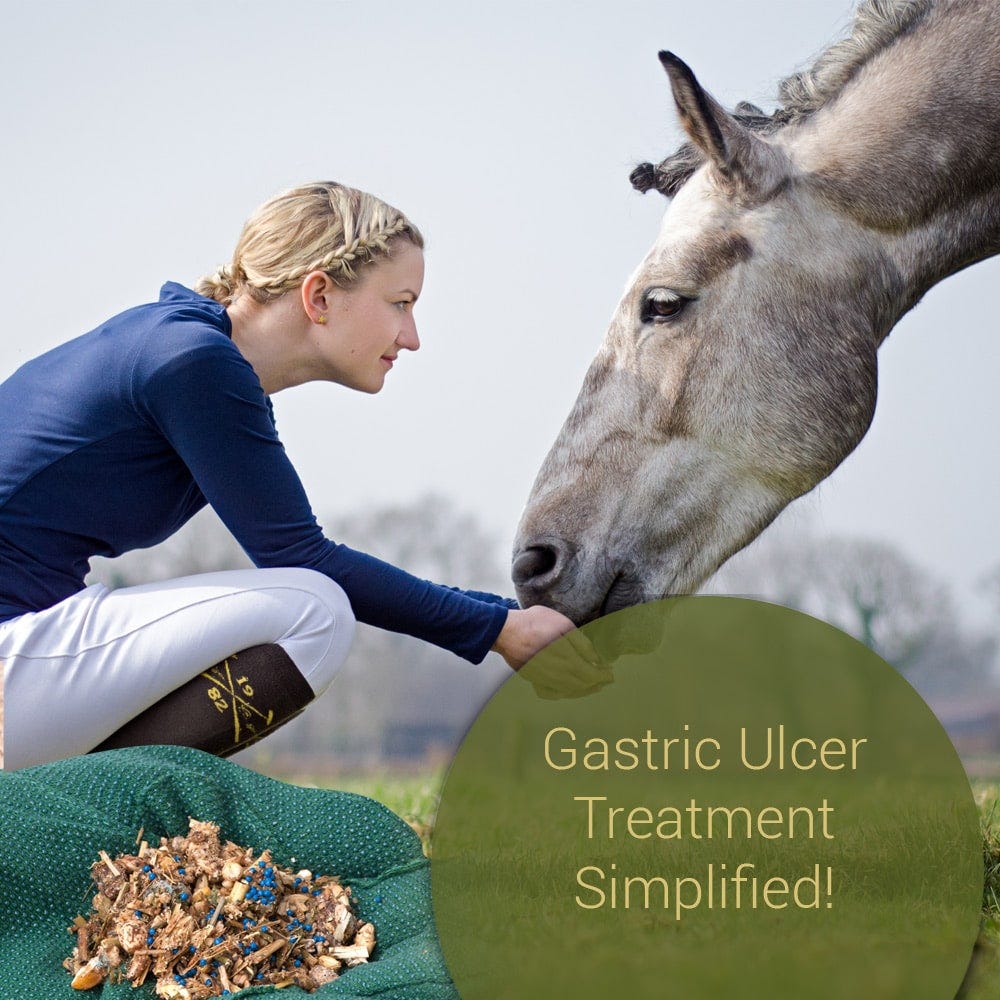We use cookies to make your experience better. To comply with the new e-Privacy directive, we need to ask for your consent to set the cookies. Learn more
Diagnosing equine ulcers with a scoping alternative
When it comes to diagnosing equine gastric ulcers, there's a scoping alternative that's becoming more and more popular. It involves a trial treatment of omeprazole.
Many vets are now suggesting that horses with gastric ulcer symptoms should be put on a short course of omeprazole, instead of being scoped. For many, this is a much more affordable and less invasive way to diagnose ulcers.
You can easily & affordably buy equine omeprazole without a script from us. Available in paste, tablets or granules you can choose from standard omeprazole - known as AbPrazole - or get the added benefits of probiotics with Abprazole Plus.
Trialling omeprazole as a scoping alternative
A horse with gastric ulcers will show significant improvement within 3 -5 days. If the horse responds well, then it would be worth keeping them on the omeprazole for a further 4 weeks. After this, the horse can be dropped to the maintenance dose.
It’s worth noting that while the symptoms ease within a few days, it usually takes about 30 days for an ulcer to fully heal.

How does omeprazole work?
Omeprazole works by suppressing the secretion of gastric acid in the horse’s stomach. These gastric acids are produced by tiny substances called proton pumps.
Omeprazole prevents these proton pumps from working properly, which limits their ability to create acid.
Using omeprazole for horses on a long-term basis
To date, the long term administration of omeprazole has not caused any clinical or biochemical alterations in horses.
Ulcers have a high recurrence rate so a long-term treatment plan with Omeprazole is often recommended (in conjunction with nutrition & management strategies). It's important that omeprazole for horses should not be 'stop started'.
This may cause even more acid production as the proton pumps go into overdrive. Similarly, horses should be weaned down to lower doses rather than being stopped suddenly.
Are there side effects when using omeprazole for horses?
As far as medications go, Omeprazole is one of the ‘safest’ ones. The two main concerns horse owners have is about the affect on horse’s digestion and the rumoured decrease in bone density.
Digestion
Because stomach acid is essential for digestive function, it’s important to note that Omeprazole doesn’t completely prevent acid from being formed. It simply reduces the amount produced - especially in horses where there is excessive acid production.
Decreased Bone Density
When used to treat humans, Omeprazole has been associated with decreased bone density. However, a study published in the Journal of Equine Veterinary Science did not make the same finding with horses.
You can see more info about that study here.
In the study, blood samples and bone biopsies were taken from 2 & 3 year old geldings prior to treatment. The horses were then administered omeprazole once a day for 60 days. It was found that bone density and composition was not significantly different between control and treatment groups at the conclusion of the treatment.
Diagnosing equine ulcers with omeprazole
Using a trial dose of omeprazole is a stress free way of diagnosing equine ulcers. There are very few side effects, and it's an easy diagnostic method - especially when scoping is not a viable option.
You can easily & affordably buy equine omeprazole (without a script) from us. Available in paste, tablets or granules you can choose from standard omeprazole - known as AbPrazole - or get the added benefits of probiotics with Abprazole Plus.








Validate your login